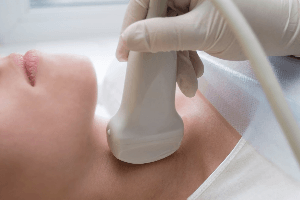6 THINGS THAT HAPPEN DURING A WOMEN'S WELLNESS CHECKUP
Admin • February 3, 2022

Each year, women are encouraged to visit the doctor for a regular checkup. Health providers recommend these annual visits to screen for potential medical conditions, check for future medical problems, update treatments and vaccinations and determine how to make your lifestyle even healthier.
Even if you feel absolutely healthy, these checkups are important. You may be able to pinpoint problem areas or find lifestyle habits that can be improved and your doctor can advise you on the best course of action. Your doctor may be able to catch illness or disease in its tracks, preventing it from worsening.
Of course, it is only natural that you are a bit nervous about your women's wellness checkup. If you are wondering what will happen during the exam, this guide will help you understand what to expect.
1. Blood Pressure Check
Your doctor will check your blood pressure regularly, especially if you are requesting a prescription for birth control or if you are taking a prescription medication that influences your blood pressure. Blood pressure may be checked more often if you also have diabetes and certain kidney or heart conditions.
If your blood pressure is higher than 135/80 or you have a body mass index higher than 25, your doctor will want to test for diabetes. This test is administered via a blood test and is relatively quick.
2. Catch Up on Immunizations
At your annual checkup, your doctor will recommend that you receive a flu shot and any necessary booster shots. These may include tetanus booster shots, which are needed about every 10 years. Additionally, you may be eligible for the HPV vaccine if you are under 26. You may also be eligible for vaccinations designed to treat chickenpox, measles, mumps and rubella if you have not had these vaccinations in the past.
3. Cholesterol Check
Checking for cholesterol typically involves checking a blood sample. Cholesterol screenings are typically recommended for women between the ages of 20 and 45, but those with normal values do not need to be checked every year. Weight gain may lead the doctor to test more often, as will diabetes, kidney disorders and heart disease.
4. Mammogram
Doctors recommend that women over 40 come in for regular mammograms. The recommended age is lower for women who have had immediate family members diagnosed with breast cancer or who have additional risk factors associated with breast cancer.
If you are in your twenties, the doctor may recommend that you perform breast self-exams at home or provide a quick clinical breast exam to check for lumps and abnormalities.
5. Physical Screening
Of course, the doctor will also want to look at a few standard qualities. These include your height, weight and body mass index (BMI). BMI categorizes people into weight classes and is used to assess potential diseases linked to weight and height.
Your doctor will ask you how you are feeling emotionally to screen for depression and may ask questions about diet, exercise, and alcohol use.
6. Pelvic Exam
A pelvic exam is often part of a women's wellness exam, but it is acceptable to express your wishes to the doctor if you have another provider or feel uncomfortable. A pelvic exam may include a check for sexually transmitted diseases or infections as well as potentially cancerous cells on the cervix.
Women should come in for this screening when they are sexually active or at age 21, whichever is sooner. Women with normal Pap smear results may not need to have this test as often.
If you have questions about your health, this wellness checkup is a place where you should feel comfortable bringing them up. The doctors at Hampstead Medical Center PC can provide you with steps to improve your health. We provide each patient with compassionate care and understanding.

The IUD, or intrauterine device, is one of the most effective methods of birth control available. Unlike birth-control pills, you do not need to remember daily to administer medication, and the device itself lasts longer than shots and is easier to use than rings. Many women find all of these benefits desirable for a birth-control method. There are two general types of IUDs available to women. The first type is the copper IUD, and the other is hormonal. Which one is right for your personal birth-control needs?

Although the risk of cardiovascular disease increases as you get older, many people who die suddenly of a heart attack didn't previously know they had heart disease. That's why identifying risk factors for heart attack and stroke is so critical to cardiovascular health. Fortunately, with regular exams and the many types of screening tests available, doctors can detect early signs of heart disease.

Even if you've never had cause to doubt your thyroid function, if you're a female who has recently given birth, you may be at risk for thyroid issues. An estimated 12 percent of Americans deal with thyroid trouble at some point during their adult lives, and women are significantly more likely than men to develop a thyroid-related ailment. Unfortunately for new mothers, many of the most common signs of an underactive thyroid (like weight gain, mood swings, fatigue, and irritability) are also quite common for those dealing with a newborn's frequent night wakings and the realities of a post-partum body. Read on to learn more about some common (and not-so-common) signs that you could be dealing with a pregnancy-induced thyroid problem as well as some treatment options that can be safely administered or performed while you're breastfeeding. What Can Cause Thyroid Problems During Pregnancy? As with many other hormonal disorders, there are often more questions than answers when it comes to thyroid function. However, researchers have pinpointed a few factors and health conditions that can raise the risk of a woman’s developing a thyroid issue during or immediately after pregnancy. For example, while only around 7 percent of women are at a general risk of developing postpartum thyroiditis, this risk increases to 25 percent for women who have Type 1 diabetes or who dealt with elevated antithyroid antibodies during pregnancy. Women whose anti-peroxidase (anti-TPO) antibodies were elevated during pregnancy may have a 1 in 2 chance of developing postpartum thyroiditis, and those who have dealt with thyroid issues in the past (or during previous pregnancies) also deal with a significantly increased risk. In other cases, thyroid problems may have no cause that can easily be pinpointed; the rush of various hormones during pregnancy and the strain they can put on various systems, including the endocrine system, can create a sort of "perfect storm" in which thyroid problems may thrive. What Are Some Signs You're Dealing With Post-Pregnancy Thyroid Issues? Thyroid problems can take a number of forms, including hypothyroidism (an underactive thyroid), hyperthyroidism (an overactive thyroid), Graves' disease (an autoimmune condition that causes goiter), or Hashimoto's disease (an autoimmune condition in which the body's immune system attacks healthy thyroid cells, eventually stopping all thyroid function). The signs and symptoms for each thyroid disorder are unique and often at opposite sides of the spectrum. For example, hypothyroid patients often report being cold, having dry skin, sleeping more than normal, or gaining weight without trying while hyperthyroid patients sweat profusely, suffer from insomnia, and can lose a significant amount of weight in a brief period. Postpartum thyroiditis often manifests as either an underactive or overactive thyroid, which usually normalizes itself in a few months. Symptoms lasting longer than that or that appear to be getting worse may necessitate medical intervention. What Treatment Options for an Underactive Thyroid Are Best for New Mothers? Whether you suspect you have postpartum thyroiditis or have been formally diagnosed, you may be worried about how your potential treatment options could impact your ability to breastfeed and what effect (if any) they might have on your child. Fortunately, there are a number of effective options from which to choose. If your postpartum thyroiditis is deemed autoimmune in origin, there is some evidence that taking selenium supplements could help normalize your thyroid function without requiring you to take hormonal medication (which might pass into your milk supply). If your symptoms aren't severe and don't impact your daily life, you may instead opt for watchful waiting, maintaining contact with your doctor and reporting any worsening symptoms but avoiding medication or other treatment for the time being. However, if your doctor recommends supplemental thyroid hormone, this usually means some intervention is necessary to prevent permanent damage to your thyroid and the organs and systems that depend on a steady dose of hormones. Make an appointment with Hampstead Medical Center PC to get started taking care of your health.

Family physicians and medical office staff help you in facilities that are patient- and doctor-friendly. Everything your doctor needs to examine, treat, and explain your condition is within reach–from hand washing sinks to your medical history. When you have a family member healing at home, it's wise to create the same sort of convenient space on a smaller scale. If you or a family member has been diagnosed with a serious condition or been hospitalized, you or the family member may eventually be sent home to recover. If the recovery will be a long-term process, there are ways to make your living quarters easier on both the patient and the caregivers. Here are a few tips to ready your residence for a recovering patient.






